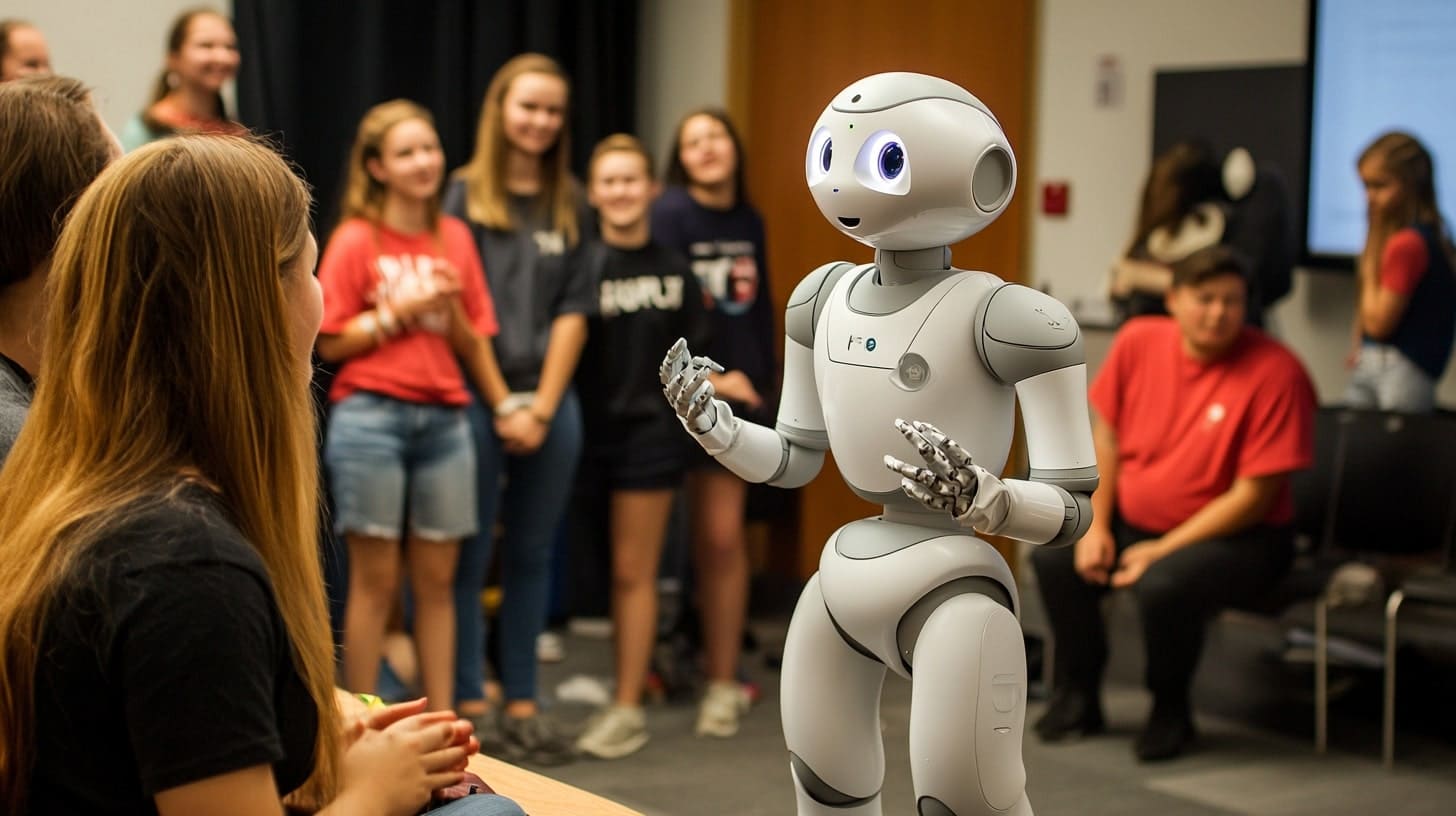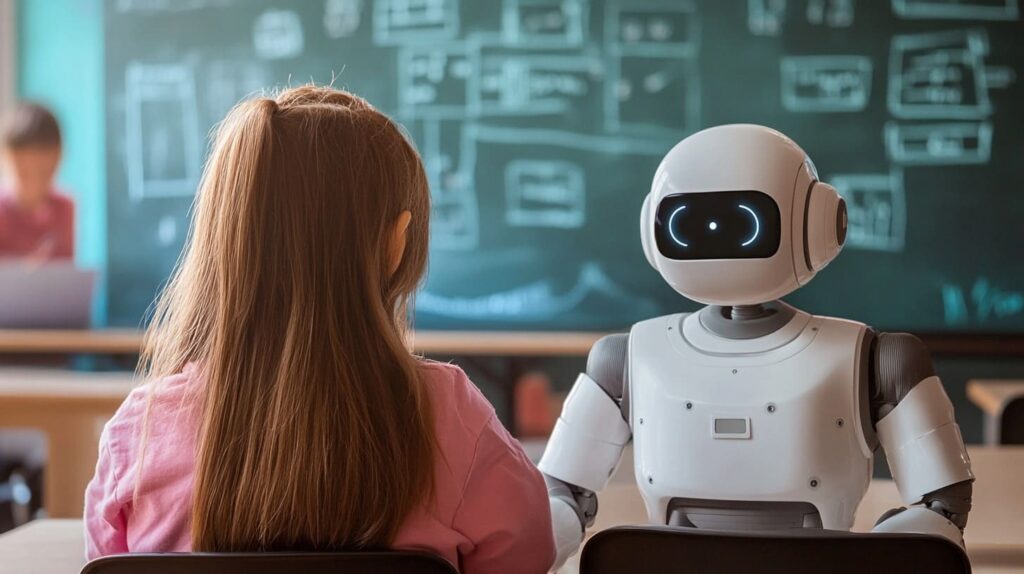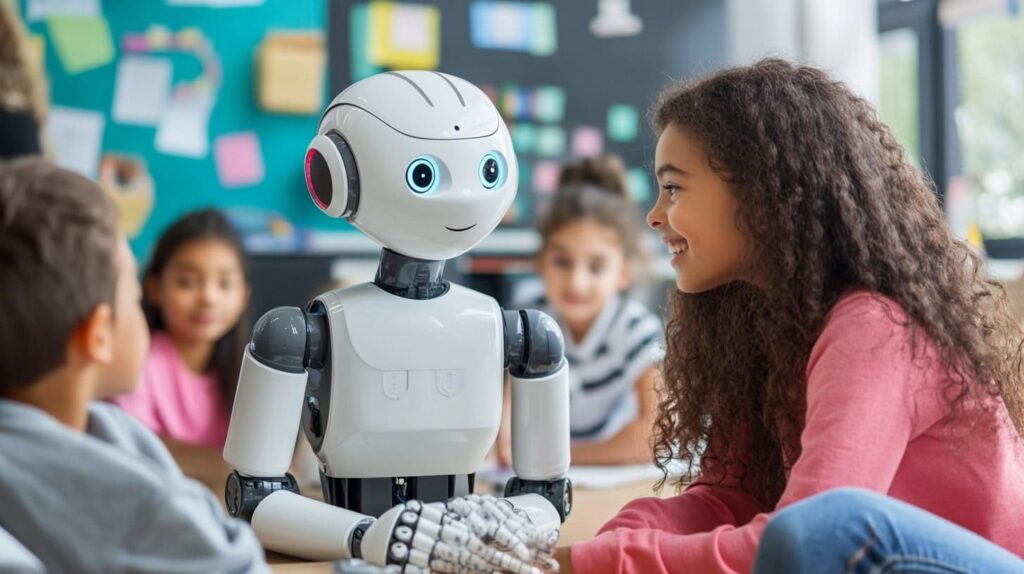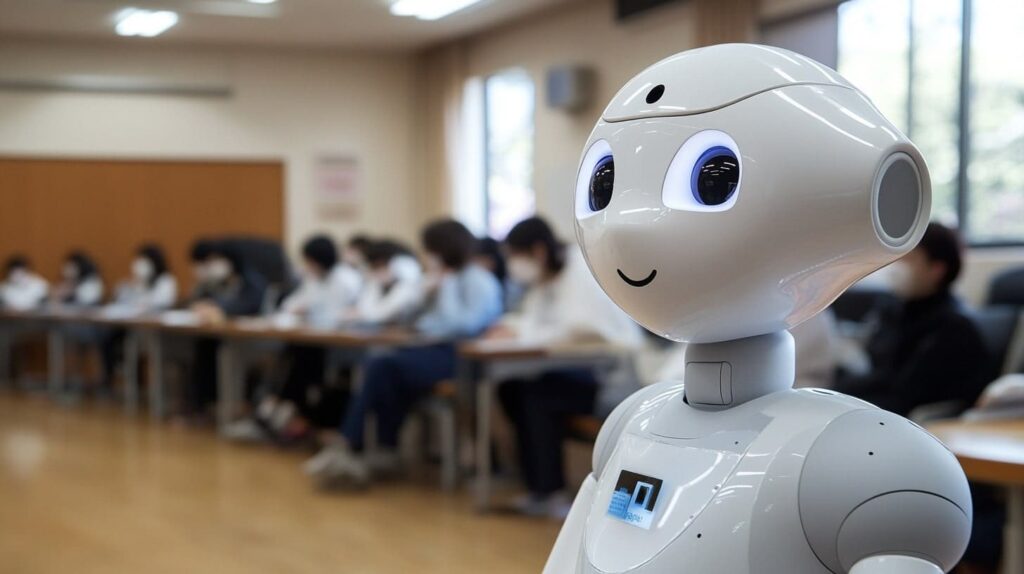Benefits of Artificial Intelligence for Students

The use of artificial intelligence is spreading into many different areas. AI helps match workers with appropriate jobs and streamline processes. AI is also gaining popularity for home comfort. Smart homes are reaching a new level and offer many benefits. The implementation of AI in education is becoming increasingly important. The benefits of AI for students allow you to customize your learning process. AI helps improve educational quality and student engagement.
A major benefit is personalized education tailored to your knowledge level. Students receive feedback on demand and use the necessary resources. Various platforms based on artificial intelligence adapt special plans. AI helps support students with disabilities in their educational journey. With 24/7 communication, virtual tutors are emerging as powerful tools for educational improvement. Technologies are constantly developing, directing learning towards progress. The partnership between AI and students is the best solution for preparing for the future profession. AI also has a significant impact on memory, critical thinking, and enhancing abilities.
AI Benefits in Education
Artificial intelligence in education is of great importance for students. It helps establish effective learning processes and improves knowledge acquisition. Students can benefit from AI in numerous ways. These are the main advantages:
- Personalized learning. One of the most significant advantages is personalized learning for the student. AI integrates learning resources and provides support materials for key concepts. AI tailors content to match each student's needs and skill level.
- Real-time feedback. Feedback is one of the best AI benefits in education. Artificial intelligence-based systems instantly provide information about the result of the task.
- Accessibility. A clear example of the potential of artificial intelligence is accessibility. Technologies help students with disabilities with learning. They offer voice input, various audio sounds, and subtitles.
- Time management. Tools based on artificial intelligence help plan the entire learning process. Time management tools help students prioritize and organize their tasks.
- 24/7 mode. A key advantage is access to virtual tutors available 24/7. Students can use various online platforms as needed at any convenient time.
- Development of critical thinking. AI benefits in education reach issues of critical thinking. Customized tasks and engaging simulations help students develop critical thinking skills.
- Personalized guidance. AI excels at providing personalized guidance. Depending on the student’s learning, AI offers recommendations for various vital resources.
- Motivation. AI uses motivational techniques to better engage students. AI platforms use gamification and interactive elements to engage students.
- Preparation for future work. AI and students work together for optimal learning outcomes. Artificial intelligence helps students gain experience through advanced technologies. This helps students build skills they'll need in their future careers.
AI for Individualized Learning

Personalized learning approaches dramatically improve educational outcomes for many students. AI is essential to effective personalized learning. AI makes learning smoother and more efficient. With the right approach, students can assess their abilities and master material more quickly. Equally important is selecting materials that match the student's knowledge level and skills.
- Today, the critical question of "Should students use AI?" arises. The answer is clearly yes, given the significant technological advances in recent years. Artificial intelligence can identify the student's weaknesses and improve learning. As a result, students develop a deeper understanding of topics and build essential skills. A key advantage is predicting learning outcomes and adapting materials accordingly.
- Thanks to artificial intelligence and machine learning, the student's data is analyzed. Individual strategies are selected that take into account the student's abilities and goals. You can often hear the question, "Should AI be used in education?" AI is essential for comprehensive learning that accounts for students' individual interests. Ongoing recommendations help students stay self-motivated. Students receive the specific knowledge they need to reach their goals.
AI in Classroom Integration
Integrating AI in classrooms helps achieve better learning outcomes. Artificial intelligence changes the approach to education for both students and teachers. AI-powered educational platforms analyze student performance. These platforms identify and deliver the most relevant content for each student. Here are the main ways to integrate artificial intelligence in classrooms:
- Automated assessment. The combination of students and AI can lead to significant learning improvements. AI evaluates and checks student work, reducing the workload on teachers.
- Virtual tutors. Advanced chatbots and virtual assistants are highly effective. They help students learn the material outside of school and university. These tools motivate students and provide ongoing learning opportunities.
- Recognition of emotions and needs. Systems based on artificial intelligence can analyze the emotional state of students. This helps maintain student motivation and reduces learning challenges.
- Inclusive learning. AI systems provide crucial support for students with diverse needs. Students with special needs benefit from features like automated subtitles and text-to-speech capabilities.
- Organization of the process. It is essential to understand "Can AI help students learn?" during critical processes and days. AI helps students plan schedules and reminds them about important meetings and lessons.
AI for Inclusion and Universal Access

AI makes high-quality education more accessible to people with disabilities. Thanks to artificial intelligence, inclusion in educational institutions is improving every year. AI tools significantly improve educational access and provide various helpful options. Here are its main areas and applications:
- Support. AI enables advanced subtitling and speech recognition technologies. These tools help people with communication disabilities. These systems convert text to speech and help overcome accessibility barriers.
- Individual learning. It is essential to understand how AI can help students with disabilities in individual learning. AI adapts educational material and assistance according to the knowledge of the student.
- Breaking down language barriers. AI translation tools facilitate communication for non-native speakers. AI tools promote inclusive education by making content accessible to all students. Real-time systems make it easier to communicate with other people.
- Accessibility. Artificial intelligence optimizes various sites and applications according to the needs of the student. It improves navigation and provides a user-friendly interface according to the capabilities.
Generative Artificial Intelligence
It is important to understand the pros and cons of using AI in education for a comprehensive approach. Today, generative artificial intelligence plays a significant role in education. This technology enables the creation of customized educational content. Generative AI can create diverse content types including text, images, music, and videos. Generative artificial intelligence creates new data based on training and specific templates.
Special models are used that are trained on large volumes of data. Machine learning helps to analyze training and create the necessary content. This comprehensive approach improves content creation and learning outcomes. Common applications include generating articles, stories, and other written content. Creating images and music plays an equally important role. Video animation programming also belongs to generative AI. Here are the main pros and cons of using AI in education:
Pros:
- AI increases creative productivity and automates routine tasks.
- Students discover new opportunities in design and other areas.
- A significant advantage is the personalization of various services.
Cons:
- Copyright concerns with AI-generated materials are a significant drawback.
- AI can be misused for manipulation or deception.
- Ethical concerns about appropriate use and data confidentiality remain major challenges.
AI Literacy
Artificial intelligence literacy plays a vital role in students' studies. Students can learn how these technologies work and apply them effectively. With AI literacy, students can critically evaluate AI outputs and use them responsibly in their learning. Here are the benefits of AI for students in literacy:
- Students using AI should understand the basics of machine learning algorithms and approach neural networks and AI models responsibly.
- Critical thinking is essential for the ability to analyze. Understanding privacy concerns and potential biases is essential when working with AI.
- Effective learning with AI requires some basic understanding of how it works. Learning to work with chatbots, virtual assistants, and other AI systems is an important skill.
- An equally important issue today is data security and understanding how to protect yourself. Data privacy is a critical consideration when using AI tools.
Proper training helps students understand AI's capabilities and limitations. Students have ethical responsibilities when using AI-generated content. The question, "Should AI be used in education?" remains relevant. With proper understanding of AI principles and security concerns, students can use these tools effectively. AI literacy is an excellent skill for improving awareness and improving education.
Practical Examples of AI in Education
AI offers powerful tools for achieving educational objectives. Some examples will help you understand why artificial intelligence is essential. Choosing appropriate personalized learning platforms ensures reliable, quality education. Students receive personalized courses according to their knowledge. Thanks to artificial intelligence, the student's level of knowledge is analyzed. Here are some clear examples of the use of artificial intelligence:
- Today, using assistants and chatbots has become an integral part of education. It is essential to understand "How does AI help students?" during complex tasks. Students can use intelligent tutors 24/7 at any convenient time.
- AI-based systems can analyze and check student work and identify errors. They evaluate and give teachers more time for meaningful work. Equally important is how AI supports inclusive learning for students who need additional assistance.
- These platforms analyze student performance and track educational progress. No less important is the possibility of simulation and interesting tasks for students. This enhances both student knowledge and engagement.
Future of AI in Education

Using the best AI for students promises improved and perfect for the future. New platforms and continuous improvements are constantly enhancing educational AI. Thanks to machine learning, information about student learning data is collected. Artificial intelligence offers solutions to many issues in accordance with specific tasks. Advanced virtual assistants help students focus more on actual learning. New courses and constant improvements guarantee data security and quality.
Equally important is allowing teachers to focus on higher-value activities. Artificial intelligence is able to process requests and provide answers to questions independently. Students can seek help and assess their skills and knowledge. Many benefits of AI for students are focused on obtaining quality education. By addressing security and inclusion simultaneously, educators can keep the focus on learning.
Pursuing Advanced Degrees in AI
It is extremely important to know and understand "why is AI good for students?" AI is transforming education, becoming both more effective and more essential. Specialized programs prepare students for advanced studies in AI. The use of machine learning algorithms provides technical knowledge. Advanced degrees in AI provide comprehensive training across many tools and techniques. Thanks to them, students achieve results and success in their studies. Students participate in various projects that are not only interesting but also practical. Advanced degrees typically require original research contributions to the field.
These programs emphasize applying AI across various disciplines. Higher degrees lead to bright and incredible careers. Students and AI are an excellent symbiosis for future bright practices. The field offers many fascinating applications of artificial intelligence. Success requires understanding the full range of AI technologies and tools. Continuous development helps specialists gain deep knowledge and education. It is important to remember the ethical issues and methods used to ensure data confidentiality. Understanding AI concepts facilitates collaboration with major industry partners and researchers.
Conclusion
AI is continuously expanding its capabilities in education. Many students are practicing and using artificial intelligence for learning. This helps students improve their qualifications and advance their education. AI and students unite in the desire to enhance and receive appropriate education. Prioritizing inclusive design ensures all students can develop their potential. Constant innovations and the use of technology provide a quality result. The integration of AI in education continues to evolve and expand. Teachers use time to improve teaching using AI. Ongoing innovation in educational AI technologies will continue to enhance student success.


